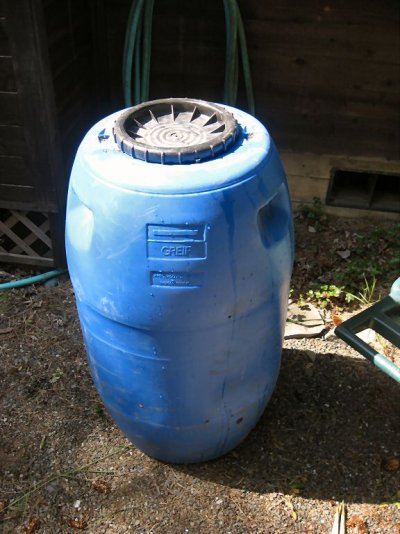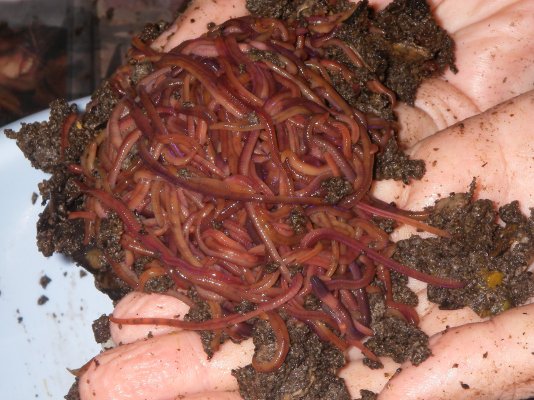Any suggestions on how to get started with a worm bin? Where do you get your worms from?
Find a business like this in your area, or research on Craigslist:
Waikiki Worm Co.: Home
The "Worms Eat My Garbage" book goes into great detail about the worm species you want but they're mostly found at the surface of the soil on pig farms & cow pastures. Getting them on your own is literally a crappy job so we took a two-hour class. $20 later we left with a one-gallon pot filled with sliced-up papaya rinds & shredded newspaper, along with a golf-ball-size squirm of worms.
Over the course of a year they ate and bred to the point where we filled a Can-O-Worms (
Waikiki Worm Co.: Can-O-Worms) with 3-4 handsfuls of them. Since then they've easily tripled or quadrupled in numbers. Our worms are all blues (as far as we know) but the reds are thought to be more hardy. We haven't noticed any problems.
Do you guys compost citrus? I always thought that was a no-no.
Papaya rinds, mango, naval/tangerine/mandarin orange peels-- no problem in the compost or the vermipost. Grape stems don't compost. Some teabags don't vermipost but they compost just fine. I'm told that worms eat citrus last but I've never tried to verify it. Papaya seeds are an issue because they survive the composting process even if they're frozen before being added to the bin. I've never had anything else survive vermiposting or composting, not even tomato seeds.
We don't have to worry about bears or raccoons, but we have found mongoose and field mice "aerating" our compost bin for us. We mostly stay out of each other's way, and I figure if they're happy with the compost then they won't try to get into the house.
What about an aerobic system? No leach field required.
Aw, man, now I'm going to have to research that. From the local newspaper's website:
Recently announced projects to bring Honolulu into compliance with sewage standards are expected to lead to 3 percent to 5 percent sewer fee increases each year for about 25 years, according to the city. That means the average single-family home's sewer bill could rise from $91 a month today to between $191 and $308 a month, excluding inflation, in 2035.
Ironically the lot next door is a sewage pumping station. But as a planned community we're probably not allowed to have the city "disconnect" us from the sewer system.
I'm about "this close" to shelling out the bucks for submetering the sprinkler system, and it would appear that the payback period will be getting substantially shorter than I'd calculated. I'm already seriously tempted to re-plumb the kitchen sink and the washing machine to the sprinkler supply pipe...



